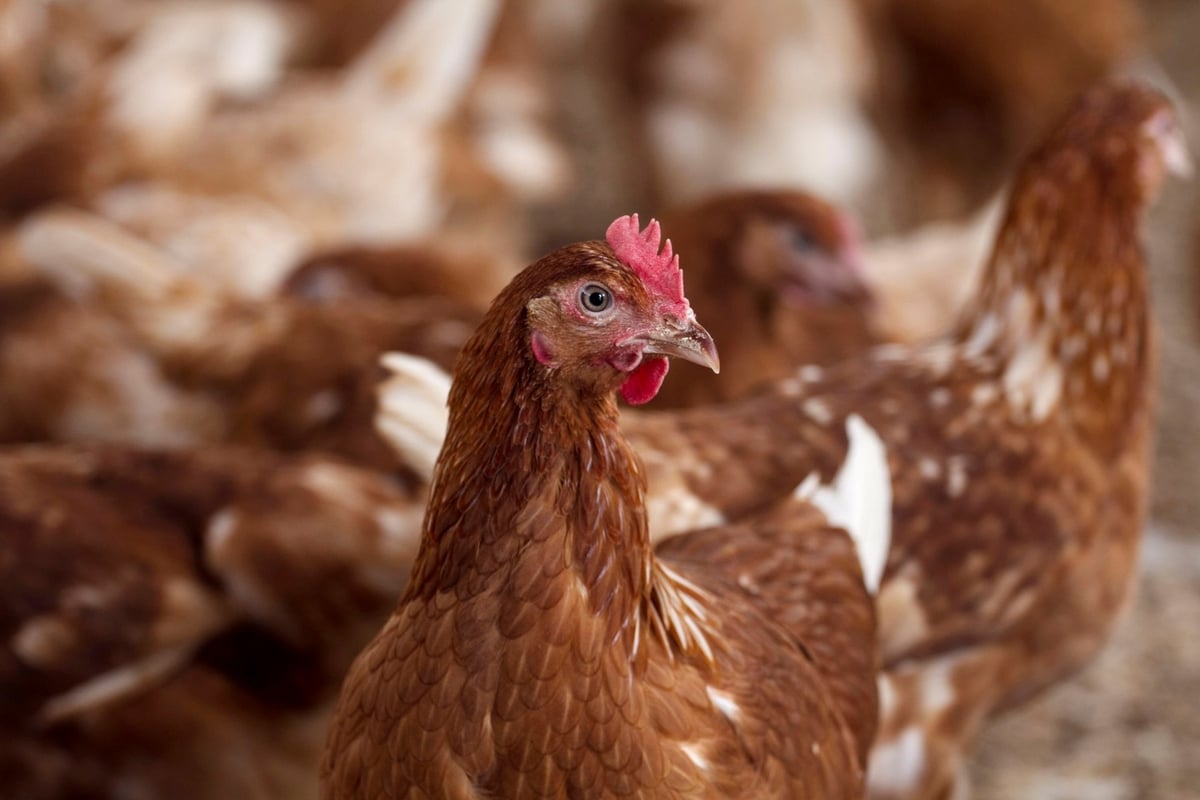June 5, 2025 | 17:49 GMT +7
June 5, 2025 | 17:49 GMT +7
Hotline: 0913.378.918
June 5, 2025 | 17:49 GMT +7
Hotline: 0913.378.918

The spread of H5N1 highly pathogenic avian influenza, has brought losses of hundreds of millions of poultry worldwide with increased spillover into mammals.
The spread of H5N1 highly pathogenic avian influenza, bringing losses of hundreds of millions of poultry worldwide with increased spillover into mammals, highlights the urgent need for strengthened biosecurity, monitoring and surveillance, rapid-response mechanisms, and risk communication to safeguard the poultry sector and protect livelihoods and economies. That was the message from a briefing by the Food and Agriculture Organization of the United Nations (FAO) to Member countries here today.
FAO Deputy Director-General Godfrey Magwenzi described the spread of the disease as unprecedented, “leading to serious impacts on food security and food supply in countries, including loss of valuable nutrition, rural jobs and income, shocks to local economies, and of course increasing costs to consumers.”
Among the complex challenges avian influenza poses are how to protect poultry production systems to ensure food security and the nutrition of the millions who rely on poultry for meat and eggs. Additional challenges revolve around safeguarding biodiversity, livelihoods and safe trade, and preventing social impacts, most often borne by poultry farmers, Magwenzi said.
Coordinated response needed
FAO Deputy Director-General Beth Bechdol emphasized that this is a transboundary issue requiring a global, coordinated response. “FAO has been on the front lines of tackling this virus for over 20 years – supporting governments in detecting, preventing, and responding to outbreaks,” she said. To strengthen these efforts, FAO and the World Organisation for Animal Health (WOAH) have launched a ten-year Global Strategy for the Prevention and Control of High Pathogenicity Avian Influenza.
Bechdol highlighted FAO’s role in combating avian influenza and other potential pandemic threats, underscoring the importance of strong veterinary and animal health system capacity in every country. “A chain is only as strong as its weakest link. By working together, we can reduce the impact of avian influenza and protect both animal and human health – locally and globally,” she said.
The last four years have seen a major shift in avian influenza in terms of geographical spread, with increased spillover to mammals and massive losses in domestic birds, impacting food security and driving up prices for poultry products, the Members were told. Large numbers of wild birds have succumbed to the disease, harming biodiversity with at least 300 newly affected wild bird species since 2021.
FAO called on countries to take several measures to address the global avian influenza challenge:
Bechdol said “FAO remains fully committed to global monitoring, sharing information, and providing guidance and tools to support all our Member countries tackle this serious threat.” She also emphasized that partnership with the private sector is vital. She described the sector as the key stakeholders in HPAI prevention and control, playing a crucial role in ensuring safe and responsible value chains, developing new technologies for vaccines and diagnostics, and providing good quality animal health services.
Funding proposals call
The meeting also included a third call for funding proposals for initiatives to be undertaken by the Pandemic Fund, hosted by the World Bank, with which FAO has co-led dozens of projects in the last two years.
Pandemic Fund projects aim to improve disease surveillance, develop early warning systems, strengthen health infrastructure, and promote cooperation across human, animal, plant and environmental health sectors. The Fund aims to attract additional resources, incentivize increased investments from countries, enhance coordination among partners, and serve as a platform for advocacy.
Among the other participants in the session were Permanent Representatives from Indonesia and Senegal and representatives from the International Poultry Council, the World Egg Organization and Health for Animals.
(FAO)

(VAN) Vikas Rambal has quietly built a $5 billion business empire in manufacturing, property and solar, and catapulted onto the Rich List.

(VAN) Available cropland now at less than five percent, according to latest geospatial assessment from FAO and UNOSAT.

(VAN) Alt Carbon has raised $12 million in a seed round as it plans to scale its carbon dioxide removal work in the South Asian nation.

(VAN) Attempts to bring down the price of the Japanese staple have had little effect amid a cost-of-living crisis.

(VAN) Fourth most important food crop in peril as Latin America and Caribbean suffer from slow-onset climate disaster.

(VAN) Shifting market dynamics and the noise around new legislation has propelled Trouw Nutrition’s research around early life nutrition in poultry. Today, it continues to be a key area of research.

(VAN) India is concerned about its food security and the livelihoods of its farmers if more US food imports are allowed.